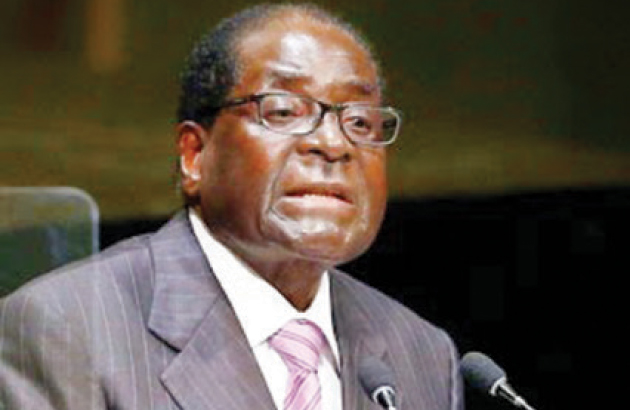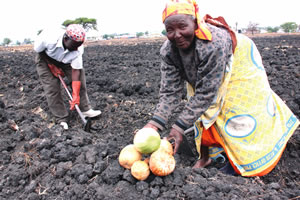Africa must shrug off client state tag

Limukani Ncube
HOW Europe Underdeveloped Africa is a 1972 book by Walter Rodney , a prominent Guyanese historian, that takes the view that Africa was deliberately exploited and underdeveloped by European colonial regimes. Reviewers of the book concur that Rodney argues that a combination of power politics and economic exploitation of Africa by Europeans led to the poor state of African political and economic development evident in the late 20th century.
In Rodney’s view underdevelopment expresses a particular relationship of exploitation, the exploitation of one country by another. All of the countries named as “underdeveloped’’ are exploited by others; and the underdevelopment with which the world is now pre-occupied is a product of capitalist, imperialist and colonialist exploitation.
Rodney set out his proposition as fact at the start of his second chapter: “It has been shown that, using comparative standards, Africa today is underdeveloped in relation to Western Europe and a few other parts of the world; and that the present position has been arrived at, not by the separate evolution of Africa on the one hand and Europe on the other, but by exploitation. To set the record straight.”
Africans have for a long time been burning the proverbial midnight oil in a bid to come up with policies to reverse the underdevelopment, and there is no better solution as the one prescribed by President Robert Mugabe. When he left the position of Sadc chairman recently, he had already prescribed what needs to be done so that the region enjoys its place under the sun. As the chairman of the African Union, he had always given the continent the answer to reverse the exploitation of Africa’s natural resources.
It has been President Mugabe’s argument and a worthy one too, for a long time, that the only way that Africa can develop further is by changing the way business is done, insisting on value addition and beneficiation to products so that Africans export finished products. This is contrary to exporting raw materials, which will entail the continent later on importing the finished products at a much higher cost, thus becoming perpetual client states to the developed world.
Delivering the State of the Nation Address in Parliament this week, President Mugabe reiterated that the country’s economic recovery plan, outlined in a 10-point plan, anchored on robust agriculture revolution and advanced value addition and beneficiation of the country’s vast natural resources. The President said the plan would provide impetus for increased foreign direct investment and domestic product competitiveness. One of the main points was that revitalising the agriculture sector and its downstream processing value chain and advancing value addition and beneficiation of primary farming and mining products are key tenets of the economic recovery plan. These would be buttressed by robust infrastructural development particularly in the energy, water; transport and Information Communication Technology sub sectors as well as unlocking the potential of small to medium enterprises.
Of note, President Mugabe said through mega deals that the government signed with China covering projects such as energy, roads, railways and telecommunications, water, agriculture, mining and tourism, Zimbabwe was positioning itself for major economic take off in keeping with the Zimbabwe Agenda for Sustainable Socio-Economic Transformation (Zim-Asset) which requires massive capital injection and rapid implementation. Since Zim-Asset is a results-based management tool, the President said it was imperative for the government to focus on corporate governance.
“It’s very clear that over many years and due to a variety of reasons, the level of compliance with good governance principles and many if not most of our parastatals and state enterprises, has fallen well below what might be regarded as even minimally acceptable,” he said. Over the years, President Mugabe has highlighted the abundant resources on the continent, pointing out that despite the abundant resources, the majority of the populace lives in poverty. He has touched on agriculture on many international platforms, underlining the need for added value and beneficiation.
“If we remain exporters of raw materials we’ll never go anywhere while other economies flourish. Sadc exports 10 percent to Europe while Asian countries export some 27 percent,” said President Mugabe at a Sadc summit held in Harare this year. At the same occasion, the President noted that the elimination of tariffs within the region had failed to spur intra-regional trade economic development, and thus, a long-term industrialisation strategy anchored on value addition of unprocessed goods was the answer to reduce poverty.
“Our region is endowed with abundant and diverse natural resources. Our mineral sector alone, contributes to world production; about six percent of coal, seven percent of nickel, eight percent of copper, 13 percent of uranium, 15 percent of manganese, 18 percent of cobalt, 21 percent of zinc, 26 percent of gold, 41 percent of chromite, 55 percent of diamonds and 72 percent of the platinum group of metals,” he said.
President Mugabe is on record saying mining companies should invest in new technologies, adding there were vast opportunities for value addition and beneficiation in the diamond industry. “Value addition begins at sorting level, going up the value chain to jewellery manufacturing. Local beneficiation and value addition of mineral commodities, enhances value, resulting in more revenue for the communities, investors and government, and in accruing additional benefits such as employment and infrastructure development,” he said.
The new paradigm shift in doing business being propagated by President Mugabe should be supported across the continent so that Africans benefit from their own natural resources, stop being client states to the West and do away with the dependency theory approach, which many critics assert, has contributed to the underdevelopment of the continent.
The dependency theory premises that resources flow from a “periphery” of poor and underdeveloped states to a “core” of wealthy states, enriching the latter at the expense of the former. It is a central contention of dependency theory that poor states are impoverished and rich ones enriched by the way poor states are integrated into the “world system”, and that is precisely what liberation war heroes fought against and Africa cannot be said to be fully independent as long as some countries remain client states of their erstwhile colonisers.











Comments